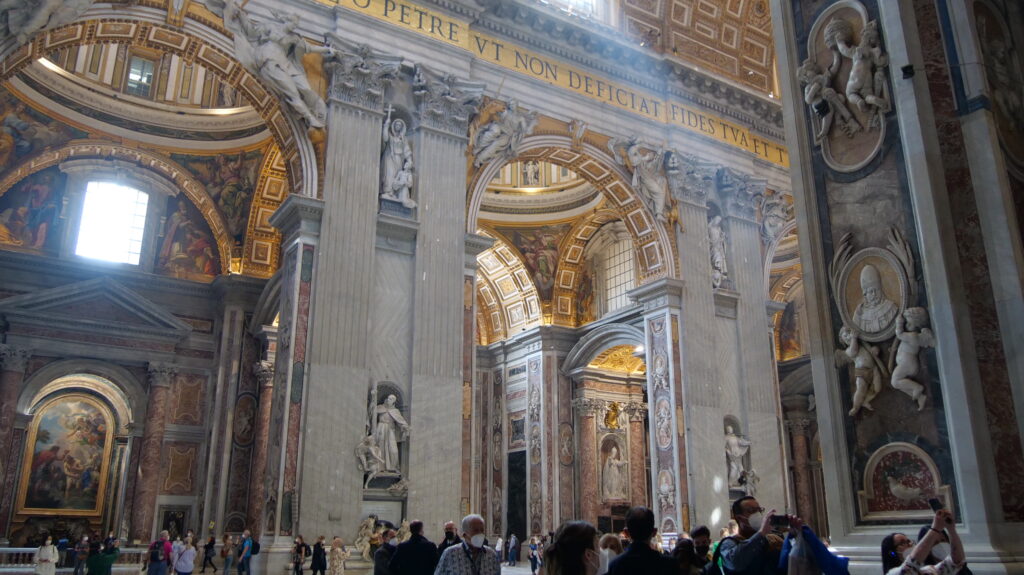Eleven years ago, there was a video on YouTube that featured a speaker outlining the reasons why he loves Jesus but hates religion. The video went viral and inspired a lot of discussion. There were many replies from people of faith, including Bishop Robert Barron and a similarly styled video from Fr. Claude Burns. But there were many others I encountered who felt the same way. They recognize the value of faith in God and faith in Jesus but have no place for the Church or organized religion. From their perspective, much of what the Church is and does makes no sense. She is not democratic, she is often shrouded in controversy, and what she expects of her members seems very difficult to live up to. Why would anyone dedicate their lives to such a thing?
 The first reason is that the Church is more than an institution. She was founded by Christ and entrusted to his Apostles. This is a responsibility which they passed on to their successors, the pope and the bishops. It is in the Church that we “receive the faith that the Church has preserved intact for centuries” (YouCat 343) and where we are nourished by the Sacraments to build up this faith. To put it simply, the Church exists to unite us to Christ and everything that she does and asks of us can help us accomplish this. She is also the bride that Jesus has given His life to sanctify (see Ephesians 5). If Christ loves her despite whatever blemishes she may have (whether these are real or perceived) then it falls to me, as one who is trying to love Christ, to learn to love her as well.
The first reason is that the Church is more than an institution. She was founded by Christ and entrusted to his Apostles. This is a responsibility which they passed on to their successors, the pope and the bishops. It is in the Church that we “receive the faith that the Church has preserved intact for centuries” (YouCat 343) and where we are nourished by the Sacraments to build up this faith. To put it simply, the Church exists to unite us to Christ and everything that she does and asks of us can help us accomplish this. She is also the bride that Jesus has given His life to sanctify (see Ephesians 5). If Christ loves her despite whatever blemishes she may have (whether these are real or perceived) then it falls to me, as one who is trying to love Christ, to learn to love her as well.
I can say with all honesty that I have come to love the Catholic Church and the more I know and understand it, the more I value what she teaches. I’ve also come to recognize that the Church loves me, even when what she teaches may seem difficult. This is what any good parent does for the child they love. I don’t think it’s any coincidence that you sometimes hear the Church referred to as Holy Mother, the Church. It helps that I’ve spent more than twenty-five years working for or on behalf of the Church and that I’ve had the chance to study the faith in depth. It also helps that I have built friendships with many members of the Church: clergy, religious, and laypeople. I’ve found family both in my local parish and in the Church on a universal level. Beyond that sense of family, the Church has a lot to offer us.
But she also asks some things of us. There are five requirements that the Church places on each of her members, identified as the ‘precepts of the Church.’ These are the starting point in any Christian’s relationship with God. We are asked to:
- Attend Mass on Sundays and holy days of obligation, and benefit from the Sabbath day of rest.
- Confess his or her sins at least once per year.
- Receive the sacrament of the Eucharist at least during the Easter Season.
- Observe established days of fasting and abstinence.
- Help provide for the needs of the Church.
“The ‘Five Precepts of the Church’ with their minimum requirements are supposed to remind us that one cannot be a Christian without making a moral effort, without participating personally in the sacramental life of the Church, and without union with her in solidarity.” –YouCat 346
Fulfilling the requirements of the precepts doesn’t mean that we have done all that God asks of us, but they do provide those first tools to get you started in your relationship with God. For this reason, the Church continues to sound the call to a deeper life of prayer. She also helps us see how the principles of the Gospel might impact how a Catholic Christian uses the internet or controversial reproductive technologies – items which are not spelled out clearly in the Gospel. It isn’t a question of changing Jesus’ teachings, but of the bishops having been made the stewards of the faith. In those moments where those teachings don’t make sense to me… I seek to understand more. Like a good parent, I believe that holy Mother, the Church is looking out for my good.
“One learns how to stay on this path, in other words, how to act rightly and lead a good life, only by following the instructions in the Gospel.” –YouCat 344
For this reason, we can be grateful to have a Church that isn’t afraid to be unpopular or to seem backwards in the ‘modern’ world. There are moments when Jesus Himself was unpopular and backwards in the eyes of those around Him because He was calling people to a higher standard. For this reason I take comfort when I hear people tell me my Church is behind the times and needs to change. I also take comfort in knowing that Jesus loves the Church as she is even when there are imperfections and blemishes in her members. That’s not a reason to reject the Church or religion, because I am grateful that He loves me in my humanity and my imperfections.
“Even today the Church gives me Jesus. That says it all. What would I know about Him, what connection would there be between him and me without the Church?” –Henri de Lubac
-This is part of a series on the Youth Catechism. Mike Landry is Catholic Youth Camp director for the Archdiocese of Edmonton. He is also chaplain for Evergreen Catholic Schools, serving 10 schools west of Edmonton. Mike and his wife Jennifer live in Stony Plain with their five children.

